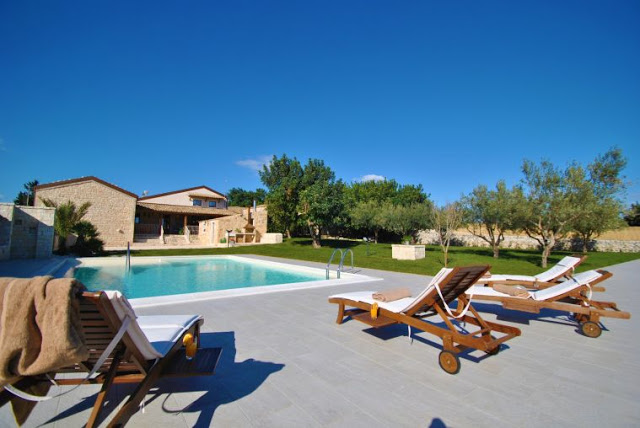If Thursday night, until a few weeks ago, was "sexy chef night" on Italian television, Tuesday night now promises my "treat of the media week" in the form of the return of the two fictional chefs from the north and south of Italy respectively, Carlo Conforti [Fabrizio Bentivoglio] and Paolo Perrone [Giorgio Tirabassi] in the second series of Benvenuti a Tavola.
By the end of the first series, the rival chefs' wives had become friends, constantly exasperated by the antics of their husbands and forever trying to keep the uneasy peace between them. The beautiful Pilar has left the Conforti restaurant but another [alas] beautiful Hispanic cook-cum-waitress has joined the Perrone establishment. High-school lovers Alessia and Federico have gone their separate ways in order to continue their studies and the romantic focus is now on Perrone's younger daughter. Popular Sicilian comic Teresa Mannino, presumably busy on Zelig Circus, has also left the cast for now. Renato, Conforti's sous-chef and fellow-conspirator, has been grieving for Mannino's character Lucia but has become the reluctant carer of a very cute dog. He becomes less reluctant when he realises there is money in the offing as a reward for his trouble but wait, Renato! Your boss wants some of that money and last week proposed a merger of the two restaurants to Paolo Perrone. "Mai" ["Never"], said Perrone but later, due to another Conforti plot, he is persuaded. Perrone makes it a condition of the merger that the two families travel to Pollica [in Salerno Province, Campania] to sign the agreement, as the only notary he trusts lives there and this is where some real-life controversy began the day after the episode was aired last week:
As I watched the episode, I was enchanted by the scenes of Pollica and decided to add the little town to my list of places I have yet to visit in Italy. I was also amused by the Perrone family's elderly relatives, who, declaring that they had had little forewarning of the visit, apologised for the modest food they were about to put before their guests. They then, of course, unveiled a feast fit for several kings and I had to smile as that is exactly what would happen in Sicily. Having gone to all this trouble, the elderly lady cooks sagely nodded and said they hadn't liked Conforti all along when it was revealed that he was trying to trick Perrone.
But what's this? In the next day's news, there was the Mayor of Pollica, Stefano Pisani, lamenting the fact that the "Pollica" scenes were not shot in Pollica at all. Mr Pisani was careful to say that he does not want to cause any argument - he just wishes to point out that he thinks the production team had lost an opportunity and he would like to invite them, with all the actors, to spend some time in the "real" Pollica and get to know its beauty, its nearby blue-flag beaches and, most importantly, the local food. He assures the TV team that the Pollichesi would accord them a fantastic welcome.
Never mind, Mr Pisani - Pollica is still on my list!
Note: I can't find any videos from the second series on youtube but there are some clips on this page of the programme's website.












































































